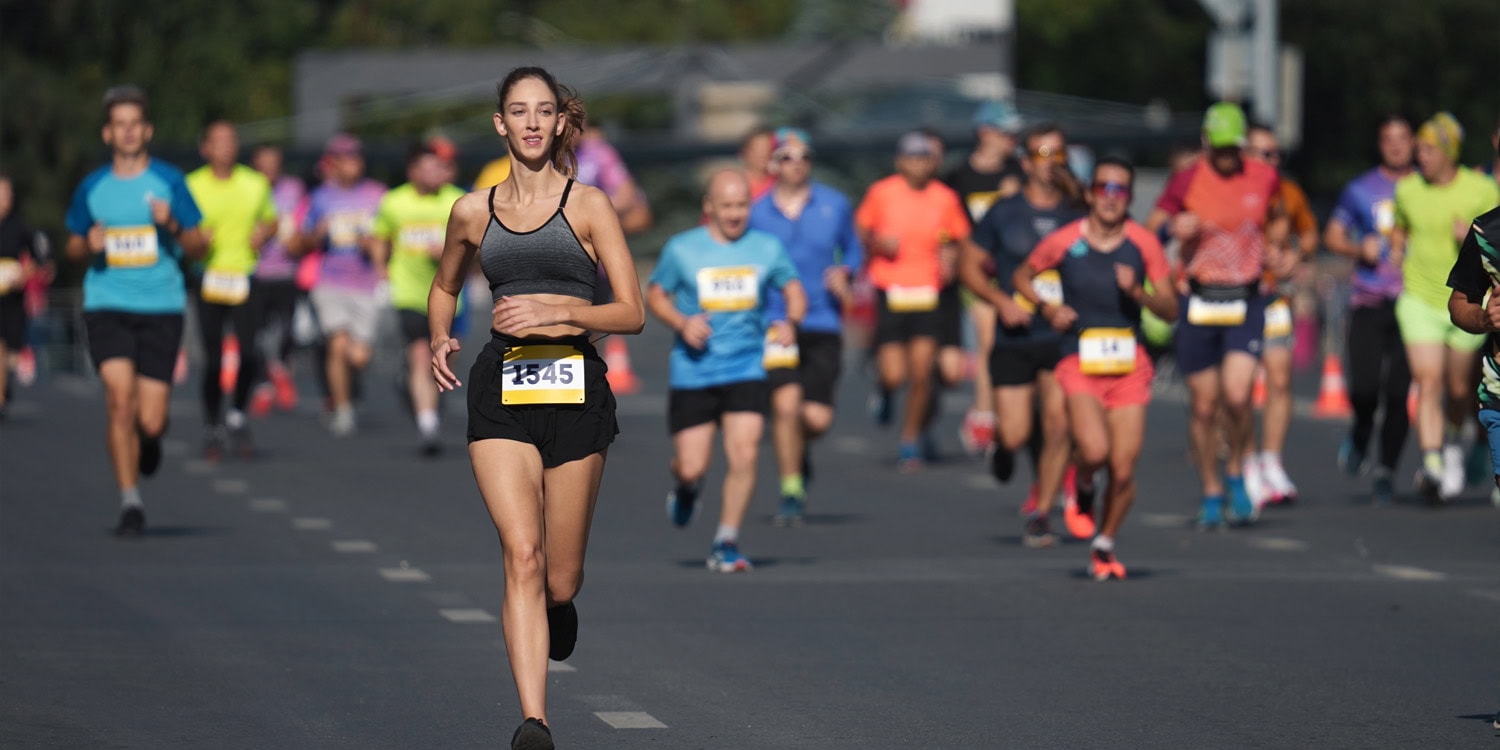New research published in the Journal of Sleep Research has found connections between marathon runners’ circadian preferences, sleep inertia, and race performance. Runners with an evening-oriented circadian preference, or “eveningness,” were found to have slower marathon completion times compared to their morning-oriented counterparts. Additionally, the severity of sleep inertia—difficulty transitioning to full alertness after waking—showed a weaker but noticeable relationship with slower race times.
Marathon running has surged in popularity, prompting researchers to explore factors that might influence performance. While variables such as age, sex, training intensity, and nutrition have been studied extensively, the potential impact of circadian rhythms and sleep inertia remains underexplored.
“Despite growing recognition of the influential role that the circadian system has on athletic performance, the relationship between circadian characteristics and running performance is understudied and poorly understood,” said study author Jesse D. Cook, a postdoctoral fellow at the University of Wisconsin-Madison and host of the Sleep Research Society Podcast.
“Since marathons typically begin mid-morning, circadian preference, or the preferred timing of one’s sleep and wake patterns that often aligns with biological chronotype, seemingly could be a relevant factor for race day performance due to a multitude of factors.”
“Sleep inertia, or the transitional period between sleep and wake that associates with impaired physical, cognitive, and psychological functioning, is a normal experience that commonly dissipates within 30 minutes upon awakening; yet, some individuals experience prolonged, persistent sleep inertia,” Cook explained. “Given that the start times of marathons can occur soon after regular wake times for participants, particularly those with eveningness characteristics, it seems plausible that the severity of this characteristic could also be relevant to race day performance.”
“Importantly, both circadian preference and sleep inertia are modifiable characteristics, in most people. As such, not only could these results help identify runners who may be at a disadvantage for race day marathon performance, but they also steer towards potential strategies that may help mitigate the disadvantage. For example, chronotherapy (e.g., strategically timed light exposure of sufficient magnitude and duration) can be useful for shifting circadian characteristics and potentially combatting sleep inertia. However, I caution individuals from implementing specific strategies and protocols without consultation and oversight from a specialized provider.”
The study analyzed data from 936 runners who participated in the 2016 London Marathon. Participants were recruited during the event registration process and completed surveys that assessed circadian preference, sleep inertia, and other lifestyle factors. Circadian preference was measured using a single-item question about whether individuals identified as morning or evening types, with responses ranging from “definitely morning” to “definitely evening.” Sleep inertia was assessed through self-reported levels of alertness within the first 30 minutes after waking, categorized from “very alert” to “not at all alert.”
The researchers found that runners who identified as “definitely morning” types completed marathons faster on average than those with an evening orientation. The data showed a linear trend, with increasing eveningness linked to progressively slower completion times. This difference was not trivial—runners with a “definitely morning” preference finished approximately 13.9 minutes faster than “definitely evening” runners.
Sleep inertia, though less impactful than circadian preference, also appeared to influence performance. Runners with more severe sleep inertia tended to have slower completion times. While the effect of sleep inertia alone was weaker and only approached statistical significance in adjusted models, it still points to the possibility that waking grogginess could hinder race-day readiness, particularly when paired with the physical demands of a marathon.
“Our results suggest that marathon runners with more preference for eveningness may be more likely to have slower marathon times, generally,” Cook told PsyPost. “This may be due to a mismatch between the event timing (i.e., mid-morning) and timing of circadian biology key to physical performance, which would be more delayed in eveningness characteristics. This could also reflect other differences between circadian preference groups, such as when and how much they typically train as well as psychological and sleep health characteristics.”
The researchers collected additional data such as age, sex, and sleep-related habits (e.g., device use before bedtime, caffeine consumption) to control for confounding variables. But as with all research, there are some caveats. While the results suggest that eveningness and sleep inertia are associated with slower marathon completion times, it remains unclear whether these factors directly impair performance or whether other variables, such as training habits or psychological traits, mediate these relationships. Longitudinal studies could help clarify causal pathways and examine whether interventions targeting these factors lead to measurable improvements in performance.
“It is critical to note that these results should not be interpreted as an indication that eveningness is inherently a bad thing, per se,” Cook added. “Unfortunately, those with eveningness circadian characteristics can experience negative stereotyping and social stigmatization, with society propelling messages that such individuals are lazy, undisciplined, etc. This is not only sad, but inaccurate, ignoring the role of innate biological chronotype in shaping circadian preference, and the influence of society’s structure that caters more towards morning and neutral preferences.”
“Ultimately, for most recreational runners, shifting circadian characteristics to enhance race day performance may be too extreme, impractical, and – potentially – unhelpful. Rather, it is important to just be mindful that these factors could influence race day performance, and it may be useful to explore implementing training runs at times that more closely align with race start time, if possible.”
The study, “Influence of circadian preference, sleep inertia and their interaction on marathon completion time: A retrospective, cross-sectional investigation of a large mass-participation city marathon,” was authored by Matthew K. P. Gratton, Jonathan Charest, James Lickel, Amy M. Bender, Penny Werthner, Charles R. Pedlar, Courtney Kipps, Doug Lawson, Charles H. Samuels, and Jesse Cook.




